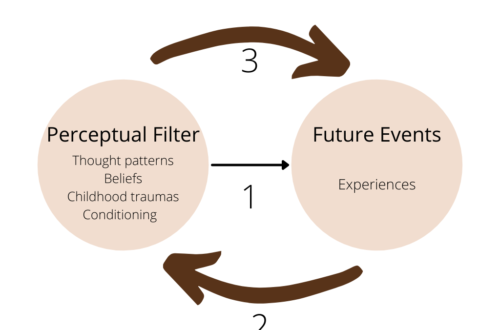Journaling for beginners: 5 ultimate tips to get started
Has anyone ever told you, “you should try journaling?” Perhaps you’ve even considered it but don’t know where to begin. For someone who may have never used a journal in their lives, it may be unfamiliar to just write. So let’s do a deep dive into the world of journaling to understand journaling for beginners and the 5 ultimate tips to get you started.
Journaling for beginners: What is journaling?
Journaling is a tool that can be used in many ways but it has one purpose: to bring clarity.
You can journal for various reasons. It’s a great place for getting things off your mind essentially bringing more space and clarity to your mind. You can journal for reflecting on life or a certain aspect of life. It’s helpful for writing down goals and monitoring them. Also, it’s a great place to write affirmations or create a gratitude practice!
While journaling, some people prefer the feeling of pen to paper but you can also keep a digital journal if that suits your needs better. The idea of journaling is essentially to write. The medium used does not matter.
The benefits of journaling
Journaling has so many benefits. For starters, it is a good tool to better your mental health. It can help to manage anxiety, reduce stress and cope with depression. It helps you to become aware of problems, fears, concerns, and triggers. It also helps us to become aware of negative thought patterns and behaviours and allows for space to cultivate positive self-talk. Additionally, it offers opportunities for tracking symptoms from day to day (University of Rochester Medical Centre, 2022).
From helping with anxiety to improving overall mental health. One study also found that a journaling intervention helped patients that were recovering from substance use disorders. Journaling independently for 2 weeks helped improve their overall well-being, recovery, and other mental health-related factors (Krentzman et al., 2022).
There are also physical benefits to journaling such as lowered blood pressure and improved lung and liver function. It can also result in improved mood (Sutton, 2022). Overall there are many benefits to journaling including mental, emotional, and physical.
How to journal if you’re a beginner
Here are some practical tips to help get you started on your journey.
1. Just write.
If you’re new to journaling, you may have the urge to be purposeful and perfect in your writing but that may be your biggest block. You don’t need to be a professional writer to journal. Journaling is so personal to everyone.
So just write. Literally, anything that comes to your mind. When first getting started, this will probably feel weird but just write whatever comes to your mind. Free write and slowly, you will notice that your feelings will surface and whatever is on your mind will naturally come up. This results in increased self-awareness, yet another benefit!
If you’re really stuck, journal to these prompts:
- What am I thinking right now?
- What am I feeling right now?
- What do I need right now?
- How was my day today?
- Do I feel satisfied?
2. Journal for reflection.
This is another common reason why people journal. Reflection is necessary for growth. It allows us to see where we’re headed in life. It also pulls us out of autopilot by increasing self-awareness. Journaling is a great way to self-reflect and results in a depth of self-awareness.

Although there is no right way to reflect, I like to categorize self-reflection as structured and unstructured. Structured is when we know what we are reflecting on. Perhaps you have pre-made prompts that you want to journal about or you have a specific topic in mind on which you want to reflect. Another example is when you’re asked to self-reflect after learning something new either in school or at work.
Unstructured reflecting is when you intend to reflect but you may not have specific prompts in mind or a specific topic to reflect on. You may just want to reflect on where you’re headed in life or perhaps reflect on how your week or day or month went.
Although you now have a good idea of what reflections are, let’s go a bit deeper and talk about what it looks like and feels like to reflect. If you were doing structured reflections, you would answer a prompt such as “what does happiness mean to you” and then generate ideas based on that prompt. This may eventually lead to a realization about what’s important to you or what you value. This is self-reflection. When you dive deep into your own psyche to understand things about yourself or the experiences you just had.
You can also try unstructured reflections but the idea is the same. Try to be honest with yourself and ask yourself how you feel about life, where are you headed, and what are you doing. The key is to go beyond surface-level answers. Don’t get stuck on the intellectual answers or dwell in sadness if you’re not going where you’d like. Try to pay attention to the feelings underlying these answers and thoughts. These feelings will also give you important insights and realizations.
Whether you reflect in a structured way or an unstructured way does not matter. Pick what you like. For starters, try reflecting on these prompts or topics.
- What brings me joy in life?
- What are my 5 core values?
- Do I feel fulfilled and satisfied?
- What habits are holding me back?
- How can I improve my relationship with myself and others?
3. Journal for clarity.
Now the whole purpose of writing and journaling is to gain clarity but what does journaling for clarity really mean and look like? Self-reflecting will also give clarity. But let’s go deeper into what this really looks like. When you want clarity on a situation, try to reflect on that situation or experience. Write everything out. Free write, unfiltered and see what comes through.
Suppose you had a conflict with your partner and reacted in a way you felt was out of proportion. Journal about this situation. Describe it and tell yourself the story. Why did you say what you said? Did you really mean it? What feelings were present in that situation? Sometimes you’ll be amazed at what can come through. You may learn about your values, what you like and dislike, and how you can be better. Awareness gives the power for transformation.
4. You don’t need to journal regularly
This may seem counterintuitive but it’s true. You don’t need to journal every single day. You may have nothing new to write every single day but maybe you’ll have something to write every few days. Though you don’t have to journal every day, you should at least journal once a week to cultivate practice. Or at least when you need it. However, when you are just beginning, you may want to journal at least a few times a week or every day to get the hang of it.
5. Pick any medium you want!
The most common way to journal is to use a notebook and a pen but you can also journal on your computer. You can use tools like Notion, an app or even just free type on Word!
How to make journaling fun!
Now, this is my favourite part! Journaling doesn’t have to be some boring habit that you eventually get tired of. You can keep it fresh, interesting, and fun! Try out some of these tips to make your journaling routine fun and exciting!
1. Buy some fun journals!
Buy some good quality, fun journals. Buy colourful journals rather than writing in a plain notebook. The point is to buy a journal that makes you excited to write or at least ignites some positive emotion within you. You can also buy guided journals with prompts if those work better for you.
2. Start a gratitude practice.
Practice writing 3-5 things you are grateful for every day. Extend it to 10! There is much-documented evidence that gratitude boosts positive emotions. Check out how you can practice gratitude. It’s a great way to feel positive and joyful.

3. Try writing affirmations with different coloured pens!
Affirmations are one of the ways to reach your subconscious mind and change its programming. It’s also a great self-care or self-love practice. If you enjoy writing affirmations, writing in a journal can make it fun and exciting. You can even grab different coloured pens and write affirmations with different colours. Find the best self-love affirmations and learn a simple formula to create your own affirmations.
Overall, journalling is a great life tool but it can also be so much fun! It is also an excellent way to stay organized. So grab your favourite drink and a fun journal and get writing!
References
Jeremy Sutton, P. D. (2022, September 19). 5 benefits of journaling for mental health. PositivePsychology.com. Retrieved November 18, 2022, from https://positivepsychology.com/benefits-of-journaling/
Journaling for mental health. Journaling for Mental Health – Health Encyclopedia – University of Rochester Medical Center. (n.d.). Retrieved November 18, 2022, from https://www.urmc.rochester.edu/encyclopedia/content.aspx?ContentID=4552&ContentTypeID=1
Krentzman, A. R., Hoeppner, B. B., Hoeppner, S. S., & Barnett, N. P. (2022). Development, feasibility, acceptability, and impact of a positive psychology journaling intervention to support addiction recovery. The Journal of Positive Psychology, ahead-of-print(ahead-of-print), 1–19. https://doi.org/10.1080/17439760.2022.2070531


One Comment
Pingback: